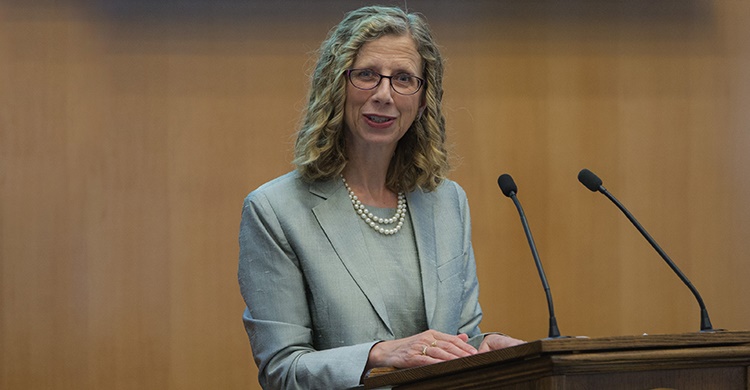The UN Environment Programme’s (UNEP) Annual Report, released on Tuesday, February 18, 2025, calls for a dramatic uptick in ambition and action for the environment. The 2024 Annual Report details the organisation’s efforts over the past year to provide science and solutions to tackle growing environmental challenges, to convene and support multilateral environmental agreements and negotiations, to align funding with global processes, and to support Member States to deliver on commitments.

2024 saw a blitz of important environmental negotiations take place, including the sixth UN Environment Assembly (UNEA-6) in Kenya, the UN Biodiversity Conference (COP16) in Colombia, the UN Climate Conference (COP29) in Azerbaijan, the fifth session of negotiations on an international, legally binding instrument on plastic pollution in South Korea, and the UN Desertification COP (COP16) in Saudi Arabia. While each of these meetings made significant progress in some areas, some key issues remained unresolved, highlighting the need for nations to work even closer together – and with more determination – to ensure agreement on and implementation of measures that would bring the world closer to a more sustainable and just planet.
Last year, UNEP’s reports provided the latest science on pressing issues of global environmental concern. The annual Emissions Gap Report cautioned that nations must close huge emissions gaps in new climate pledges and deliver immediate action or lose the Paris Agreement goal of limiting global warming to 1.5°C by 2100.
UNEP’s 2024 Adaptation Gap Report found that while international public adaptation finance flows to developing countries increased from by $6 billion between 2021 and 2022, a huge gap continues to exist between adaptation finance needs and current international public funding available for adaptation.
In Gaza, a preliminary environmental assessment by UNEP found that the conflict has caused unprecedented levels of pollution, with sewage, debris and toxic munitions contaminating soil, water, and the air. The report notes that environmental degradation risks irreversible damage to Gaza’s natural ecosystems.
UNEP is also providing crucial data to support nations and companies as they act on methane emissions. The Methane Alert and Response System, part of UNEP’s International Methane Emissions Observatory – a satellite data and machine-learning system that identifies major methane leaks – has delivered more than 1,000 notifications to governments and companies over the last two years. The alerts led to the plugging of major leaks in Algeria and Nigeria, preventing the release of greenhouse gases equivalent to those that 1 million cars would produce over a year.
Through 2024, UNEP mobilized significant funding in co-financing from partners, enabling countries to focus on electric mobility, energy efficiency, renewable energy, and low-emission buildings. These initiatives are expected to benefit more than 17 million people and reduce greenhouse gas emissions by almost 300 million tonnes, the equivalent of taking 65 million cars off the road.
Reflecting on the past year and looking ahead at 2025, UNEP’s Executive Director, Inger Andersen, said: “The reality is that environmental multilateralism is sometimes messy and sometimes arduous. But even in complex geopolitical times, collaboration across borders and across our differences is the only option to protect the foundation of humanity’s existence – Planet Earth.”
“UNEP calls for a dramatic uptick in ambition and action in the coming year. Nations must promise and deliver huge cuts to greenhouse gas emissions in the next round of Nationally Determined Contributions (NDCs), due in February 2025. They must start delivering the necessary finance for climate adaptation and for desertification and biodiversity action. And they must work towards agreeing on a strong instrument to end plastic pollution before UNEA-7 in December,” she added.
